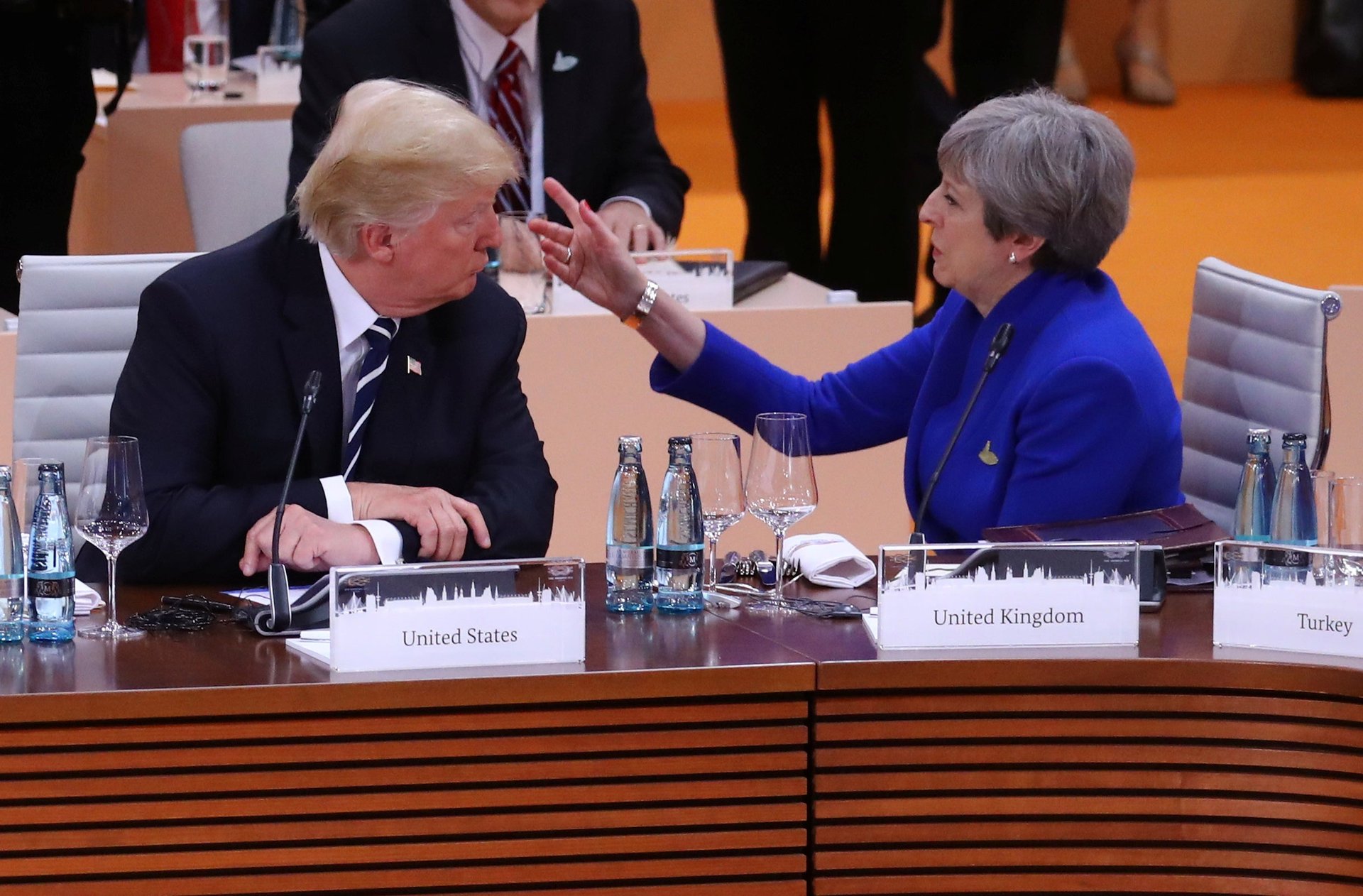Britain can seal a US trade deal if it extricates itself from the EU’s highest court
Sealing huge transatlantic trade deals has been at the heart of Britain’s government pushing for a ‘hard Brexit.’ The plan is to relinquish access to the single market in exchange for total control over immigration.


Sealing huge transatlantic trade deals has been at the heart of Britain’s government pushing for a ‘hard Brexit.’ The plan is to relinquish access to the single market in exchange for total control over immigration.
The UK government can only push ahead with these deals once it leaves the EU and if it doesn’t have to answer to the remaining 27 members and the bloc’s arbiter, the European Court of Justice (ECJ). That requires completely leaving the single market, which is exactly what the government wants to do, as detailed by prime minister Theresa May and the government’s Repeal Bill.
The ECJ is the highest court in matters of EU law. Commentators like the Financial Times say that May has an “unhelpful obsession” (paywall) with removing Britain from the ECJ’s jurisdiction, as part of her mission to “take back control” of the country’s laws. In theory, extricating itself from the ECJ could complicate negotiating a trade deal within the EU, since the ECJ is the arbiter of the single market. In reality, though, the UK government’s push for the full ‘hard Brexit‘ might actually help it secure a comprehensive transatlantic trade deal.
That’s because under a ‘hard Brexit’ scenario, Britain doesn’t have to gain any permission from any other country to seek and seal a trade deal. Other trade deals have suffered from being subject to the ECJ; for instance, the EU-Canada Free Trade Deal (CETA) nearly collapsed because it required unanimous agreement with all members of the EU on the details of the deal. If the country negotiating the deal is not part of the EU, the agreement can be settled by the two parties alone.
Of course, there are other obstacles to the US and UK reaching a trade deal, but keeping ties to the EU and its courts might not be one of them.